Top 20 IoT Enterprise Market Leaders In 2016
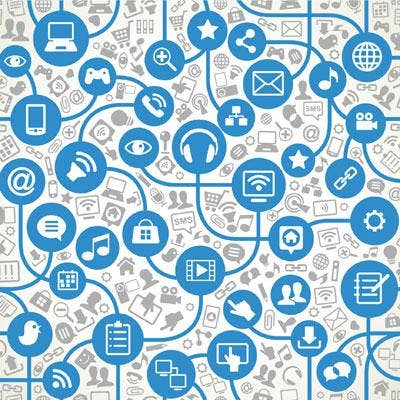
IoT Hits $6.7B For Q4 2015
The Internet of Things market landscape is finally taking shape, as revenue hit a record high of $6.7 billion for the top 20 benchmarked IoT companies in the fourth quarter of 2015, according to a recent report from market research firm TBR.
Leaders in the IoT enterprise space include AWS, Cisco, Dell, Google and SAP, as well as players filling niches in the space such as Symantec for IoT security.
"We believe this is the biggest quarter ever, but we also believe the future quarters will be bigger," said Ezra Gottheil, principal analyst for TBR specializing in IoT, in an interview with CRN.
"There's still a lot of, 'I'm not sure how to build it.' 'I'm not sure about the standards.' 'Who are the leaders?' There's still some inhibitors, … but they're beginning to weaken, as there's more and more experience, and you get to the fast part of the adoption curve," said Gottheil.

The Data Facts
TBR reported that total commercial IoT revenue among the 20 benchmarked companies leading IoT grew 15 percent year over year, to $6.7 billion, for the fourth quarter of 2015. Cloud services displayed the highest growth rate, nearly 80 percent, reaching $604 million compared with a year before.
The research firm tracked commercial sales of IoT of products and services to enterprises, weeding out sales of devices and services directly to consumers -- such as wearables and home automation. TBR says it doesn't yet cover chipsets and processors for IoT, which is why some vendors such as Samsung aren't on the list.
TBR, which did not provide market share percentages, lists the 20 leading IoT vendors in alphabetical order.
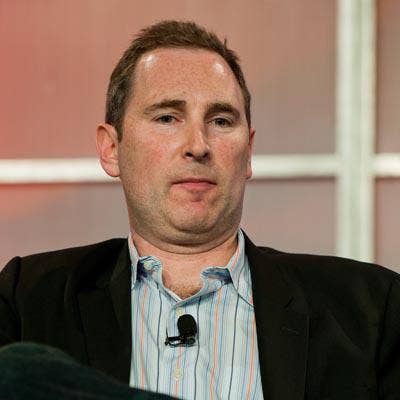
Amazon Web Services
Top Executive: Andy Jassy, CEO
AWS' flagship IoT managed cloud platform lets connected devices securely interact with cloud applications and other devices. Customers can also create new applications on the platform.
"They added the capabilities of having those applications being driven directly from the devices," said Gottheil. "It's a great way to consolidate your data and analyze your data. They've got lots of tools for [business intelligence] and things like that."
But the Seattle-based cloud behemoth doesn't have the ability to do any processing away from the cloud, Gottheil said. "They don't give you a way of working with Amazon other than on the cloud," he said.
AWS launched an array of new IoT services and features at its recent Global Partner Summit.

Accenture
Top Executive: Pierre Nanterme, Chairman and CEO
Channel giant Accenture is focusing on high-end IoT business consulting for mostly larger enterprises that are trying to transform their businesses.
"Accenture is going right for top management, saying, 'Let's really think about the big picture here,' " said Gottheil. "They've been very effective in getting top management to really think about how to leverage very open-ended potential. If you're going for really transformative change, you've got to have a very broad view, and that's where Accenture excels."
In December, Dublin-based Accenture acquired IoT consulting firm Cimation, which helps energy-related industries with industrial IoT technology.
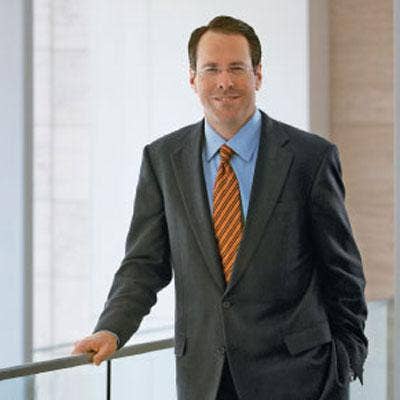
AT&T
Top Executive: Randall Stephenson, CEO and Chairman
The Dallas-based telecommunications giant has embraced IoT in a big way and has been building platforms for various use cases such as connected vehicles.
"AT&T is primarily a connectivity play," said Gottheil. "Wherever you have devices which are either widely dispersed or mobile, you basically end up using a cellular network, and having your cellular network have IoT expertise and [be able to] customize plans, and to be focusing on cost-effectively delivering connectivity, is really strong."
AT&T recently formed a dedicated Smart Cities Organization to look deeper into IoT opportunities around solutions.
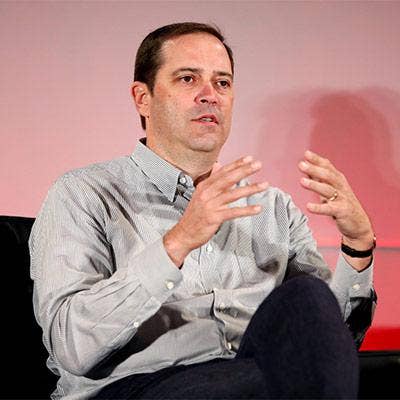
Cisco
Top Executive: Chuck Robbins, CEO
The San Jose, Calif.-based networking giant put its IoT stake in the ground last year, saying Cisco's future lies within the Internet of Things. Cisco put its money where its mouth is with the $1.4 billion purchase of IoT provider Jasper Technologies in February.
"Cisco's made a big strategic commitment for IoT as a way to grow the company and expand their influence," said Gottheil. "They're present in a huge percentage of companies -- that gives them an advantage to say, 'Let us help you with your IoT plans.' They focus a lot on security and they're doing a lot of acquisition in the IoT space."
Cisco recently told CRN that it is transforming its distribution channel and partnerships around IoT.
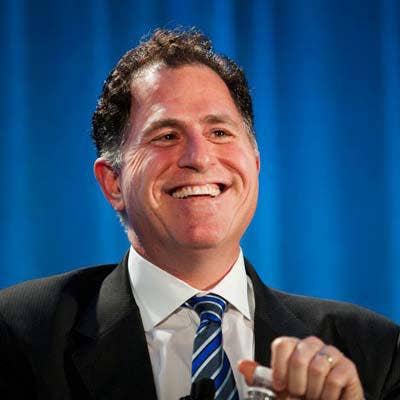
Dell
Top Executive: Michael Dell, Chairman and CEO
Round Rock, Texas-based Dell is another IT giant placing big bets on IoT, saying it takes a pragmatic approach by building on the equipment and data customers already have to enable analytics-driven solutions.
"They're already a substantial OEM business where they imbed PCs and servers inside other people's devices, things like medical devices or machinery -- that's the group that is developing their IoT strategy," said Gottheil.
Dell Statistica is a statistical analytics package that is well-suited for IoT applications, he said. "You can take a model created in this analytics package and actually put it on a machine that's not running Statistica itself," said Gottheil. "That's an important play for them."
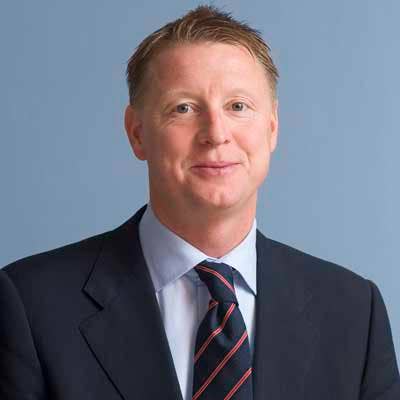
Ericsson
Top Executive: Hans Vestberg, CEO
Stockholm-based telecommunications behemoth Ericsson has been developing IoT solutions and strategic partnerships over the past year, with a focus on the public sector.
"They're doing an awful lot in the world of smart cities and public [sector], and largely working through their network providers to give them assets that they can resell and use to service their direct customers," said Gottheil. "Ericsson is helping its customers, which are the network providers, provide the services to their customers."
Ericsson recently published an online, comic book-like book about the benefits of IoT. Ericsson also formed a partnership with Cisco last year that the companies said will generate incremental sales in 2016 for both vendors, ramping to $1 billion or more for each by 2018. (Read more about that in the next slide.)

Cisco-Ericsson Partnership
It's worthy of note that a potentially game-changing IoT partnership of Cisco and Ericsson was created last year to develop next-generation service provider networks and new platforms and services targeting IoT.
"They complement each other rather than compete," said Gottheil of the Cisco-Ericsson partnership. "What Ericsson does is give you an access to the whole cellular world, and what Cisco tends to give you is an access to the internal networks, Ethernet, fiber and wireless," said Gottheil. "So they complement each other, and this lets Cisco take its more generic kind of platform approach to IoT and stretch it out to where cellular is the right kind of network."
Although there is nothing tangible as far as technology innovation is concerned, Cisco and Ericson recently said the company's sales forces are successfully engaging with customers around the globe on business deals around networking, mobility and cloud technologies, IP transformation and managed services agreements.
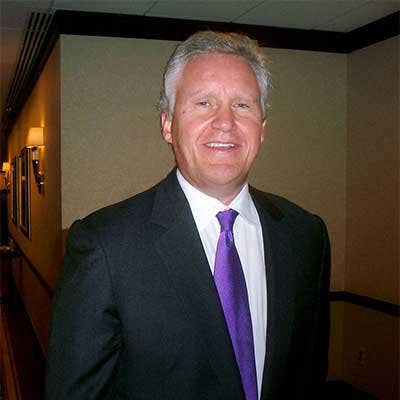
General Electric Co.
Top Executive: Jeffrey Immelt, Chairman and CEO
GE, Fairfield, Conn., recently launched a new partner program alongside the general availability of its IoT-focused industrial equipment monitoring and analytics platform, Predix. Last year, GE unveiled its cloud-based platform for the industrial Internet, Predix Cloud, which allows customers to analyze data generated by IoT sensors embedded in industrial equipment aimed at solving line-of-business problems.
"They're doing something extremely interesting, which is basically they homebrewed their own IoT software platform -- Predix. … They're opening a whole new part of the market to themselves," said Gottheil.
"They're taking it to a new market saying, 'The connectivity management, security and predictive analytics are things that can be used in more than just GE-branded hardware,' " he said.
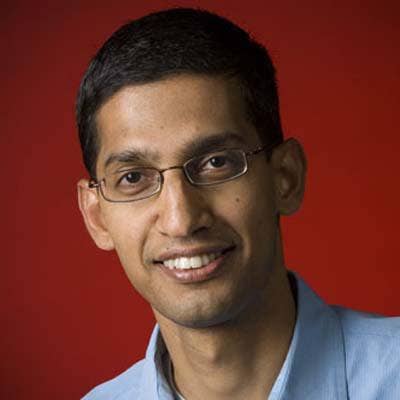
Top Executive: Sundar Pichai, CEO
The Mountain View, Calif.-based company's Google Cloud Platform is building a best-in-class suite of big data tools aimed at the IoT market, such as BigQuery, which allows customers to collect and analyze large volumes of sensor metrics over time.
Gottheil says Google has two different approaches to IoT -- one is largely consumer-oriented around Android devices and software. On the other end, Google has a public cloud service "that's extremely well-suited" for the commercial market, according to Gottheil.
"They want to connect up all your devices and do all your analytics," said Gottheil. "They've got a bunch of analytics and artificial intelligence tools that are available whether or not you use their platform."
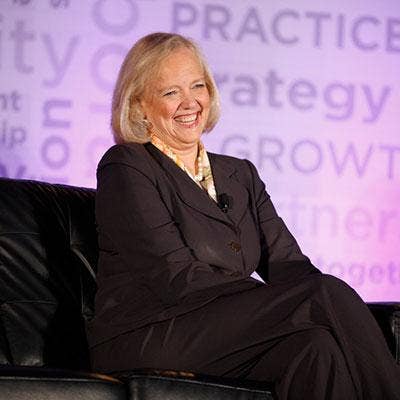
Hewlett Packard Enterprise
Top Executive: Meg Whitman, President and CEO
Hewlett Packard Enterprise provides a variety of pieces that go into an IoT solution with a broad range of products. Palo Alto, Calif.-based HPE says it takes a solutions-based approach to IoT as opposed to focusing on one area of the market.
"They're selling a lot of the essential pieces of [IoT] – they've also got analytics packages that are relevant to IoT data," said Gottheil. "More recently, they've been looking at this multi-tier architecture, where you bring the compute closer to the devices to save money, save data transmission costs, storage costs and to get lower latency."
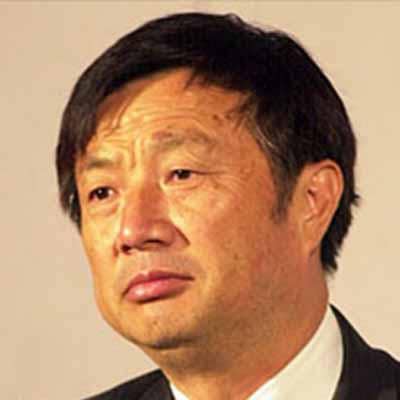
Huawei
Top Executive: Ren Zhengfei, President and Founder
Huawei is starting to ramp up its commercial IoT solutions after the launch of its dedicated platform for IoT connectivity management: Huawei IoM. The Shenzhen, China-based networking giant has two focuses when it comes to IoT: making consumer-driven IoT gadgets and building out its network services business to better support IoT.
"In terms of commercial IoT, they're building out of their IT hardware services business and their network services business," said Gottheil. "Their network providers are getting Huawei-based products and services, but they also have a substantial business for data center hardware for companies and they're benefitting from them as they build out IoT solutions."
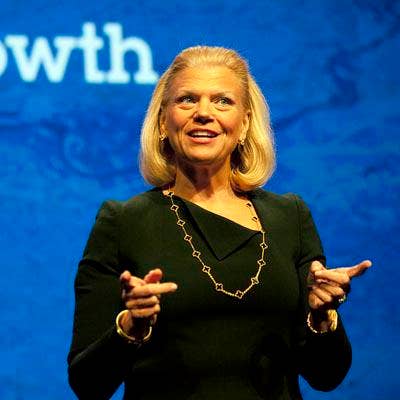
IBM
Top Executive: Ginni Rometty, Chairman, President and CEO
IBM is promising to spend $3 billion over the next four years developing a portfolio of cloud services and software targeting enterprise IoT.
"They're not just talking the talk, they're walking the walk when it comes to IoT," said Gottheil. "They're going with a very strong business consulting wing. … They've got an awful lot of execution in terms of services as well as execution in terms of a software platform."
IBM is also forming strategic IoT partnerships with specific industrial verticals and large-scale agricultural verticals. "IBM is working on helping customers see that [return on investment] for larger investments, especially in big data," he said.
Armonk, N.Y.-based IBM launched a broad Smarter Planet initiative, which looks at ways to bring IoT technologies to a variety of sectors, including smart cities and mobile enterprises.
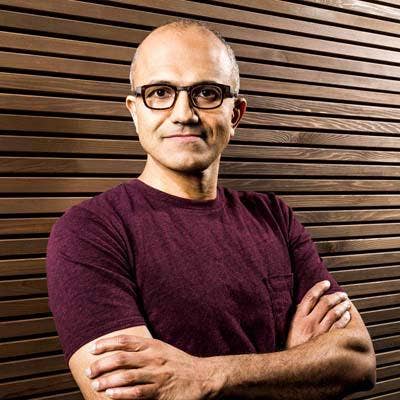
Microsoft
Top Executive: Satya Nadella, CEO
Microsoft has started selling its Azure IoT Suite, a preconfigured set of services that connects sensor-equipped devices to the Azure cloud, capturing the data they generate, and managing and analyzing the data.
"Their major IoT thrust is Azure. … That's the way that Microsoft will make a major play in commercial IoT," said Gottheil. "It's a platform that doesn't have the limitation of Amazon or of Google. It can operate on-premise as well as in the cloud, and it's got a lot of analytics and interface capabilities."
Redmond, Wash.-based Microsoft also built an IoT-specific version of Windows 10, Windows 10 IoT Core Pro, designed for small Internet-connected devices. "It's a very bare-bones Windows that can run a full-fledged Windows on a limited resource device," said Gottheil.

Oracle
Top Executive: Mark Hurd, Safra Catz, Co-CEOs
Oracle provides an IoT cloud service that enables businesses to analyze data from connected devices in real time. The solution can be integrated through enterprise connectivity and API-based integration with Oracle apps and IoT devices.
The Redwood City, Calif.-based company benefits largely from capturing the data, rather than from specific IoT solutions, according to Gottheil.
"It's not being too specific in IoT, but wherever you are gathering, analyzing, manipulating large quantities of data, Oracle gets in on the business," said Gottheil. "It's also about the core business applications, because once you've got an IoT application running, you're going to integrate that information into your core business applications and have them work together."
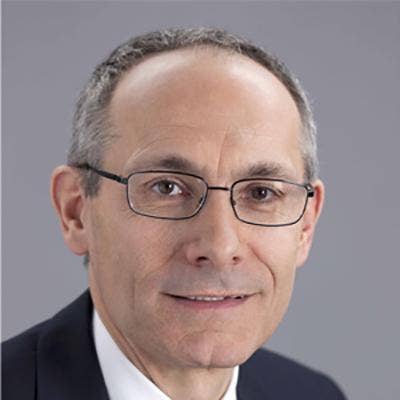
Orange Business Services
Top Executive: Thierry Bonhomme, CEO
The network service provider Orange Business Services is leveraging its global footprint to help customers realize the benefits of IoT. Paris-based Orange says it's well-positioned to advise, co-innovate and implement IoT solutions across verticals by breaking down silos between the IT world and the operational technology (OT) world.
"There aren't a lot of obvious vendors to go to, so Orange says, 'We can help our business customers create their IoT solutions,' " said Gottheil. "Orange benefits from not only IoT help it is giving customers, but [from] ongoing connectivity, which is their core business."
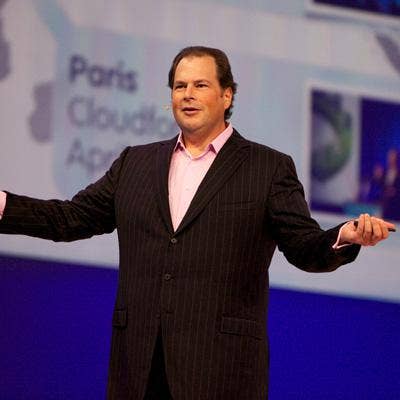
Salesforce
Top Executive: Mark Benioff, Chairman and CEO
Salesforce.com has introduced Salesforce IoT Cloud, designed to help businesses process massive quantities of data, build business rules with simple tools, and engage with customers in real time. The solution, used in conjunction with its CRM software, is targeting businesses rather than developers or engineers.
Overall, Gottheil said, IoT complements Salesforce in a big way. "What Salesforce is saying is, 'Make your field service operation run much better by integrating data from devices as well as from your personnel and customer's personnel,' " he said.
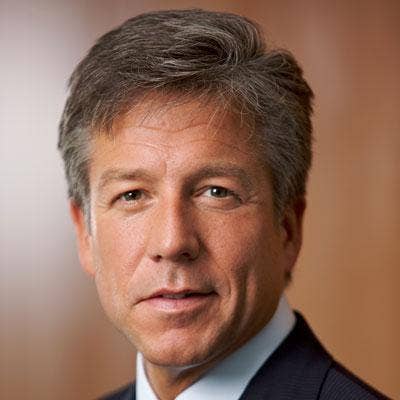
SAP
Top Executive: Bill McDermott, CEO
Software vendor SAP launched its SAP HANA Cloud Platform for IoT, which includes a range of data and application services. Some were already built into HANA, including predictive analytics, telematics and geolocation capabilities, while other IoT services are new, such as device management, IoT messaging and IoT application enablement.
"One of the things you're going to do with your IoT data is you're going to integrate it with your SAP core business data. So they get that automatically," said Gottheil. "At the same time, they have their own IoT-oriented platform that's complementary to HANA that provides for … very high-end and very rapid analytics."
At Mobile World Congress 2016, Walldorf, Germany-based SAP showcased its new IoT agricultural application.
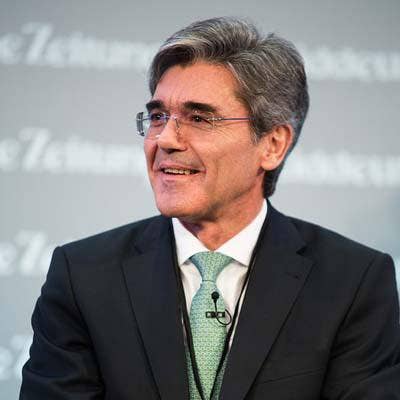
Siemens
Top Executive: Joe Kaeser, President and CEO
Munich-based engineering giant Siemens is largely confining its IoT to its existing hardware and operations technology customers at this point in time, according to Gottheil. Siemens has formed strategic IoT partnerships with the likes of SAP and Intel.
"Siemens is saying, 'We're using this information technology to make our products like huge machines much more effective, efficient, safer, have a higher up time and higher productivity,' " said Gottheil. "But they're not separating their IoT from their other products -- it's baked in."
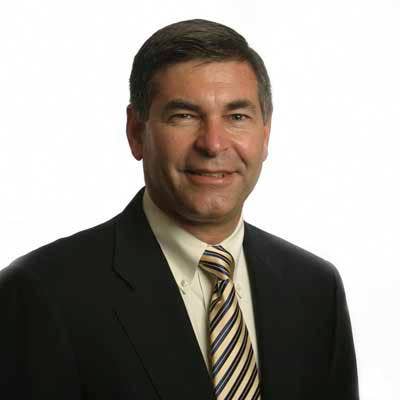
Symantec
Top Executive: Michael Brown, CEO
Security vendor Symantec is leveraging its high position in the market to provide cybersecurity for IoT. The Mountain View, Calif.-based vendor is making heavy investments in providing IoT endpoint security, according to Gottheil.
"They got new software that goes to a large variety of these small-footprint devices, sensors, platforms, and can do things like end-to-end encryption and authentication -- that's an interesting play in IoT," said Gottheil. "They really are, more so than almost any of the other IT companies, breaking down a barrier between information technology and operations technology."
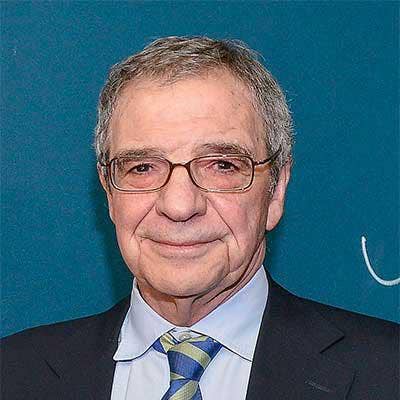
Telefonica
Top Executive: Cesar Alierta, Chairman and CEO
Madrid-based global telecommunications provider Telefonica is leveraging its connectivity footprint to help customers build IoT solutions.
"They've got customers who have bought connectivity from them forever and now they're saying, 'There's lots of opportunity in IoT, and we have to connect those things, but it's a lot more than just connecting them -- we can help you,' " said Gottheil.
Telefonica is also creating management packages around security, data and devices that enable customer to build IoT solutions.
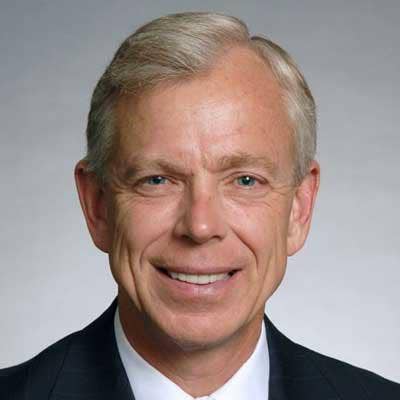
Verizon
Top Executive: Lowell McAdam, Chairman and CEO
The Basking Ridge, N.J.-based communications service provider has readied its 4G LTE network to handle IoT endpoints by developing a core IoT network within its LTE architecture.
"Verizon sees an opportunity to go beyond the one connection per user -- now you can get a connection per device. To do that, you have to give your customer the tools in which to create and deploy device-oriented solutions," said Gottheil.
Gottheil said Verizon is also working on pricing plans to find ways to make subscription prices per device "much lower and that's often quite feasible."
Verizon Enterprise Solutions is helping to drive IoT with a portfolio of machine-to-machine products services as well as its ThingSpace platform, which is a Web-based, self-service interface allowing developers to create IoT applications.